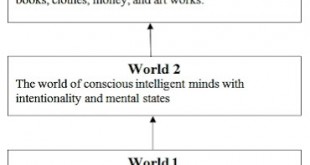Chapter 22 of volume 1 of Capital is called “National Differences in Wages” and deals with the various factors that cause differences between national wage rates. For Marx’s views on how the value of labour-power is determined as a subsistence wage, see his analysis in Chapter 6 of volume 1.Marx reminds his readers of the discussion in Chapter 17 and the issue of how the subsistence wage may vary: “ … the quantum of the means of subsistence in which the price of labour is realised might...
Read More »John Searle on Consciousness in Artificial Intelligence
John Searle, Slusser Professor of Philosophy at the University of California (Berkeley), gives a Google talk below on consciousness in artificial intelligence.John Searle is a great analytic philosopher in the tradition of Bertrand Russell, and his work on AI and consciousness is particularly interesting. This talk is really insightful.Searle is summarising arguments from his paper “Minds, Brains, and Programs” (1980) and his book Consciousness and Language (2002).[embedded content]Searle...
Read More »John Searle on Economics
In a few seconds of partly facetious, partly very serious discussion. He’s not far from the truth either![embedded content]And, yes, as Searle says, we can indeed have an epistemologically objective science of economics, even though important things in economic life are subjective in a deeper sense (e.g., expectations, subjective utility) than just being “observer-relative.”The epistemologically objective science we need is Post Keynesian economics. Everything else is charlatanry,...
Read More »The Church-Turing Thesis, Turing Computable Functions, and the Human Mind
First, the Church-Turing Thesis.The Church-Turing Thesis states that, given any effective procedure or method (or algorithm) by which the value of a mathematical function can be obtained, then that same function can also be computed and its value obtained automatically by a Turing machine (see Copeland 1997, “The Thesis and its History”).To be “effective,” the algorithm or procedure must have a finite number of instructions in a finite number of steps, and could in principle be done by a...
Read More »Miguel Nicolelis and Ronald Cicurel on the Human Mind
In the video below, Miguel Nicolelis (a neuroscientist of the US Duke University) and Ronald Cicurel (a mathematician) discuss their book: Cicurel, Ronald and Miguel A. L. Nicolelis. 2015. The Relativistic Brain: How it Works and Why it Cannot Be Simulated by a Turing Machine. Kios Press, Natal, Montreux, Durham, São Paulo. [embedded content]There are too many fascinating points in this discussion to fully describe.But what is notable is their scepticism of the more grandiose aims of the...
Read More »Alan Turing’s “Computing Machinery and Intelligence”
Ken B, take note!Since I am getting flack for being skeptical about the Turing test, let me review Alan M. Turing’s original paper “Computing Machinery and Intelligence” (1950).As a matter of pure historical interest, one of the first people to imagine intelligent machines was the 19th century novelist Samuel Butler in the novel Erewhon (London, 1865), which is actually cited by Turing in his bibliography of this paper (Turing 1950: 460). A case of life imitating art?Anyway, I divide my post...
Read More »George Selgin versus David Graeber on the Origin of Money
The blogosphere has recently seen a new debate on the origin of money between George Selgin and David Graeber: Ilana E. Strauss, “The Myth of the Barter Economy,” The Atlantic, February 26, 2016 http://www.theatlantic.com/business/archive/2016/02/barter-society-myth/471051/ Though not by Selgin or Graeber, I gather that this article set off the debate.George Selgin, “The Myth of the Myth of Barter,” Alt-M Ideas for an Alternative Monetary Future, March 15, 2016....
Read More »Human Consciousness, Artificial Intelligence and Popper’s Three World Ontology
Long-time commentator Ken B has drawn my attention to this post by Gene Callahan that complains that the Turing Test doesn’t really test for real intelligence.In essence, I actually agree on this point, though I would reject Callahan’s dualism.The endless debates about whether machines or software have real intelligence generally tend to suffer from a shoddy fallacy of equivocation. Generally, people who want to defend the real intelligence of machines make arguments like this: (1) machines...
Read More »Trump’s Wall versus Spain’s Wall: The Left Wing Hysteria about Trump’s Proposed Border Wall
There is a country called Spain. Many people probably do not know that Spain still has a few small strips of territory in North Africa called the “plazas de soberanía” (“places of sovereignty”), such as Ceuta and Melilla. I am not sure how attached the people of Spain are to these outposts in North Africa, but that is not the issue here.In some of these places, the Spanish government has built walls or fences to protect its territories.Here is a photo of the Melilla border fence between...
Read More »Marx’s Capital, Volume 1, Chapter 21: A Critical Summary
Chapter 21 of volume 1 of Capital is called “Piece Wages” and deals with wages paid by the number of output goods produced.A “piece wage” is a wage payment by quantity of products or units produced by a worker.Time wages and piece wages both exist and sometimes side by side. Marx argues that “[w]ages by the piece are nothing else than a converted form of wages by time, just as wages by time are a converted form of the value or price of labour-power” (Marx 1906: 602).But piece wages conceal...
Read More » Socialdem. 21st Century
Socialdem. 21st Century


